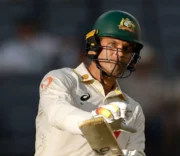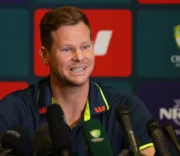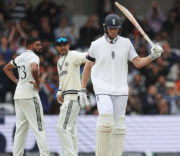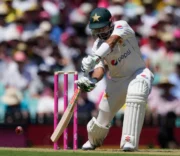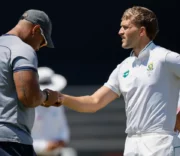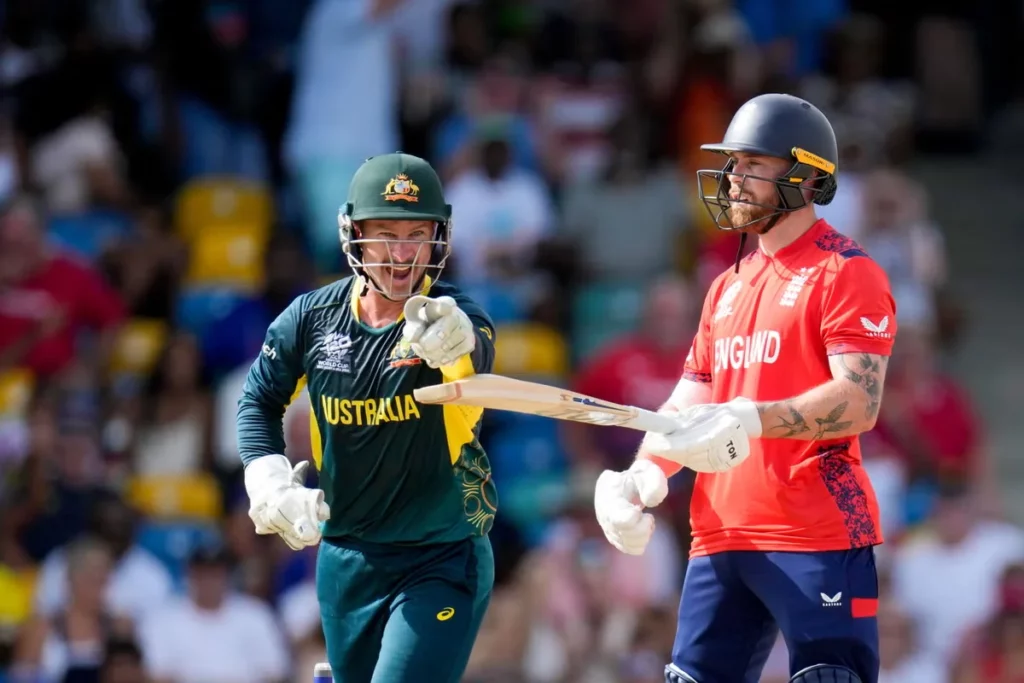
At Bridgetown airport on Sunday, the bar was buzzing with the India vs. Pakistan match on display, showcasing the World Cup’s visibility in the Caribbean. England supporters, watching the thriller with a cold Banks beer before their flight to Antigua, saw Scotland already enjoying the sun and gearing up for a critical week.
A day after England’s defeat by Australia at Kensington Oval, and amidst Pakistan’s setback in New York, Scotland’s seven-wicket win over Oman at Sir Vivian Richards Stadium was crucial. Richie Berrington’s team chased 151 runs with 41 balls remaining, boosting their net run rate and edging closer to the Super Eight phase. They couldn’t have asked for a better performance.
Scotland Eyes Super Eight Berth as England Faces Uphill Battle
Scotland sits atop Group B with five points and a net run-rate of +2.16. Their final match is against Australia in St Lucia on Saturday night. Jos Buttler’s England, with just one point after a washout, must beat both Oman and Namibia decisively to level points, improve their -1.8 NRR, and hope Australia beats Scotland by a significant margin to drop them to third place.
England’s challenge is compounded by the fact that Scotland will know exactly how much they can afford to lose by as the match progresses. Australia, likely to secure their Super Eight spot with a win over Namibia on Tuesday, might rest key players against Scotland, as their NRR won’t carry over into the next round.
While Australia isn’t expected to lose deliberately, their motivation may not be as high with their Super Eight place assured and seedings already determined. Nonetheless, winning in a way that hinders England could be tempting for Australia.
“We’re not really focused on where England are at,” said Australian coach Andrew McDonald. “We will do what’s important to us within those games.”
England’s T20 Dilemma: Chasing Net Run Rate
England have their work cut out in their next few games. In the last T20 World Cup, they faced a similar situation, needing to chase the net run rate but ultimately missing out on the semi-finals. It’s always tough relying on other results, but that’s their challenge to navigate.
A comparable scenario occurred in the 1999 50-over World Cup. Amid boos from the Old Trafford crowd, Steve Waugh’s Australia slowed their chase of 111 against West Indies. Their goal? To damage New Zealand’s chances of reaching the Super Six. Unlike today, results between teams in the group stage carried forward back then. Having already lost to New Zealand, it benefited Australia to aid West Indies’ net run rate while still securing victory.
The Ethics of Strategy in Cricket
“I don’t know about it being moral, but it was in the rules,” Waugh insisted afterwards, highlighting the age-old debate between the letter of the law and the Spirit of Cricket. Back then, without social media, Matthew Engel called it “a dreadful and shameful game of cricket” in these pages. He noted that football had already figured out the need for simultaneous final World Cup group matches.
Regardless of its legitimacy or ethical implications, Waugh’s tactic didn’t work as intended. New Zealand demolished Scotland for 121 in Edinburgh the next day, needing 21.2 overs to surpass West Indies on NRR and finishing with 21 balls to spare.
Returning to the present, several variables still need to align for such a scenario to repeat. With England’s shaky tournament start and their tendency to struggle against supposedly weaker teams, fans who planned for the Super Eight might find themselves supporting teams north of the border.


